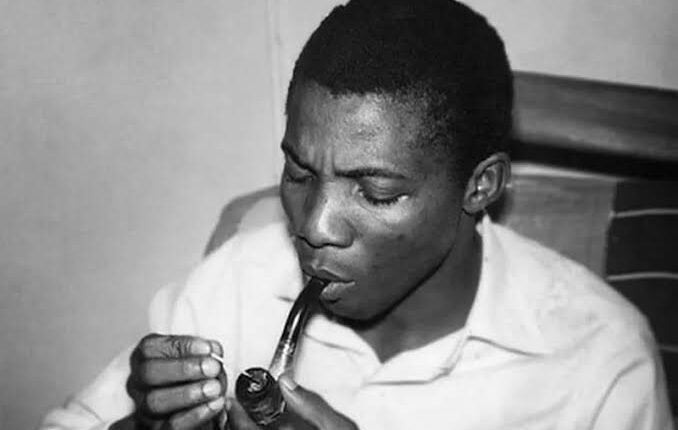In the heart of Abuja on Thursday, August 28, 2025, poets, scholars, lawmakers, cultural leaders, and admirers of literature gathered to honour a man whose words continue to echo across continents decades after his passing — Christopher Okigbo.
Okigbo, often described as the greatest Anglophone African modernist poet of the 20th century, was the focus of a commemorative event themed “The Importance of Christopher Okigbo’s Nomination into the UNESCO Memory of the World Register and Its Impact on Nigeria’s Cultural Heritage and Literary History.”
The occasion was more than a literary celebration; it was a reaffirmation of Okigbo’s enduring legacy, cemented in 2007 when UNESCO officially inscribed his works into the Memory of the World Register. This honour places him in a rare category; the only individual African artist whose personal archives have been recognised at such a global level.
In his welcome address at the commemorative event, UNESCO Nigeria’s representative, Ifeanyi Ajaegbo, described Okigbo as “a world-class artist whose poetry made an indelible mark on Africa and the world.” His works, Ajaegbo noted, are distinguished by their fusion of Western literary traditions and Igbo cosmology, weaving together myths, symbols, and landscapes into verses that resonate both locally and globally.
In her presentation, Founder and CEO of the Christopher Okigbo Foundation, Obiagali Okigbo, highlighted the uniqueness of this recognition. According to her, among the 494 entries currently listed in the UNESCO Memory of the World Register, only 36 are from Africa — a mere 5 percent. Okigbo’s collection stands alone as the sole inscription dedicated to an individual African artist.
“Okigbo’s poems reflect his deep understanding of Western literature and Igbo cosmology, capturing symbolic reflections of life in naturalistic Igbo landscapes,” she explained.
She added that the archive, preserved through UNESCO’s flagship programme, contains handwritten manuscripts, unpublished works, sketches, and personal papers. These documents, according to her, do not only showcase Okigbo’s genius but also capture a turbulent period in Nigeria’s history, including the political crises of the 1960s, the Biafran secession, and the Civil War.
In a pre-recorded video played at the event, Nigeria’s first Nobel Laureate, Prof. Wole Soyinka, underscored the need for Okigbo’s message to transcend national borders. “We believe in showcasing people like him—those who set an example in their fields. The message of Okigbo should not stop in Nigeria. It must resound across the world,” Soyinka said.
For Soyinka, UNESCO’s recognition should not serve as a resting place for Okigbo’s works but as a launching pad for wider cultural exchange. “They shouldn’t remain confined within our borders or within UNESCO archives. They should travel—engaging the global stage and fostering cultural exchange,” he added.
He also challenged a new generation of writers to carry this torch: “I urge upcoming writers to carry this legacy forward across continents to ensure our stories, our culture, and our voices are heard globally.”
Echoing this sentiment, Chairman of the Senate Committee on Solid Minerals, Senator Ekong Sampson, spoke of Okigbo’s immortality through literature. “Okigbo is not dead. Writers have no caskets—because writers are prophets. And prophets don’t die. Writing is a mirror. And we must do more to honour those who have shaped our national identity through literature,” he said.
For academics like Prof. Okey Ikechukwu, Executive Director of Development Specs Academy, the recognition of Okigbo’s works is also a reminder of Africa’s intellectual wealth. “His works, now preserved for future generations, enhance his national and international stature. They also inspire cultural scholarship and creative engagement,” he observed.
Christopher Okigbo died in 1967 during the Nigerian Civil War, but his voice remains alive, preserved in manuscripts, anthologies, dissertations, and biographies across the world. His poetry, deeply personal yet profoundly universal, continues to inspire generations of readers and scholars.
In celebrating his recognition by UNESCO, the Abuja gathering reminded Nigeria and the world that the poet’s pen still speaks. His words, drawn from both myth and modernity, continue to shape not just African literature but the global conversation about identity, history, and cultural memory.
Okigbo may have fallen on the battlefield, but as the tributes revealed, his words ensure that he never truly died.



[…] just a month ago, was asked to resign after reportedly clashing with President Donald Trump’s health policy direction. When she refused to step down, the president dismissed her directly, a move […]